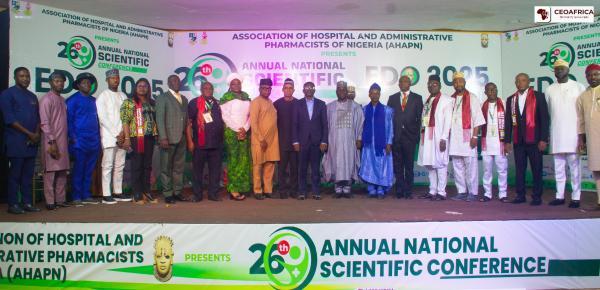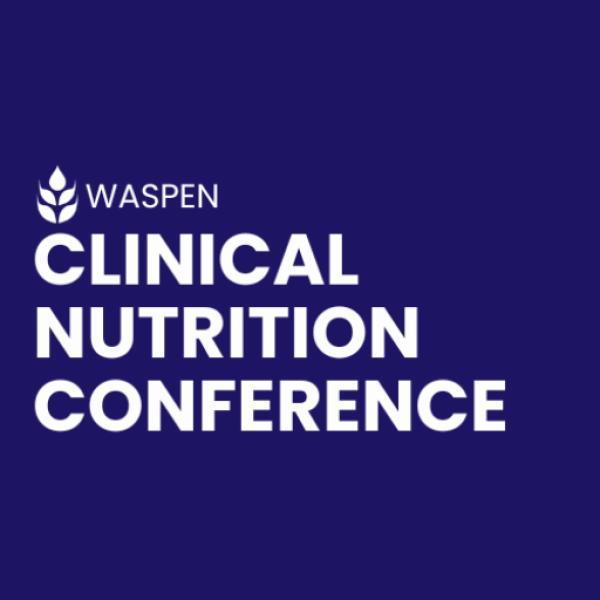
During the 26th Annual National Scientific Conference of the Association of Hospital and Administrative Pharmacists of Nigeria (AHAPN), held on August 6, 2025, at the SIO Event Center in Benin City, Edo State, two impactful plenary sessions engaged healthcare professionals from various sectors, including academics, retired pharmacists, policy makers, clinicians, technologists, and other esteemed members of the pharmaceutical industry.
The first session, chaired by Pharm. Bode Ogunjemiyo, featured a presentation by Pharm. (Dr.) Thomas Omotayo Ilupeju on the topic "Pharmaceutical Policy and Regulation in Low-Resource Settings." Dr. Ilupeju began by defining key terms related to policy and regulation, providing an overview of pharmaceutical policy and the policy development process. He elaborated on Nigeria’s national drug policy and its objectives, emphasizing the need for tailored strategies in low-resource contexts.
Dr. Ilupeju highlighted several essential strategies for implementing pharmaceutical policies, particularly in developing countries like Nigeria, where a significant percentage of medicines are imported. He discussed the necessity of local manufacturing, stressing the importance of premises approval, product registration, and establishing a conducive environment for pharmaceutical growth by the government. He noted, "Seventy percent of the country's medicine consumption is imported, which underscores the urgency of developing our local industry."
The presentation outlined critical areas of focus, including drug selection, procurement, storage, financing, and access to medications. Dr. Ilupeju emphasized that rational use of medicines and effective drug distribution systems are crucial to ensuring that quality medicines are available, affordable, and utilized appropriately. He also addressed the challenges to policy implementation in low-resource settings, such as political interference, weak public institutions, and inadequate funding.
"To create effective pharmaceutical policy and regulation in Nigeria," Dr. Ilupeju concluded, "we must strike a balance between identifying essential medicines and aligning our strategies with available resources, all while prioritizing public health goals."
The second session, chaired by Pharm. (Dr.) Daniel Otakho Orumwense, featured a compelling lecture by Pharm. Olumide Akintayo, a past president of the Pharmaceutical Society of Nigeria (PSN), titled "Imperatives of the New Pharmacy Council of Nigeria Act 2022."
Dr. Orumwense welcomed attendees by acknowledging the urgency for action among pharmacists, emphasizing that “the time for lamentations is over; let us stop lamenting and begin to take action.” He encouraged pharmacists to engage in strategic thinking and collaboration, asserting the vital role they play in shaping the future of pharmacy practice.
In his presentation, Pharm. Akintayo stressed the significance of the recently enacted Pharmacy Council of Nigeria Act 2022 and its transformative implications. He noted the historical context of pharmacy legislation in Nigeria, stating, “For the first time since 1878, the nomenclature has changed to encompass all pharmaceutical stakeholders and facilities, highlighting a comprehensive regulatory framework.”
One of the Act’s groundbreaking features is the inclusion of pharmacy technicians and other stakeholders under the PCN, granting them recognition and a sense of belonging within the regulatory landscape. Pharm. Akintayo emphasized that the law aims to ensure the safety, quality, and affordability of medicines while strengthening the regulatory framework around pharmaceutical practices.
He also pointed out that the Act addresses previously discriminatory practices that limit certain positions within healthcare institutions to physicians, urging pharmacists to advocate for equity. “It is a discriminatory act to restrict Chief Medical Directors to only physicians; this violates the constitutional rights of all Nigerian citizens,” he argued, prompting thoughtful reflection among attendees about the implications of existing laws.
Following each lecture, pharmacy professionals actively participated in engaging discussions, asking questions and sharing their insights on the critical subjects addressed. Each presenter was honored with appreciation awards, recognizing their contributions and expertise in advancing pharmaceutical practice in Nigeria.
The plenary sessions at EDO 2025 exemplified the spirit of collaboration and innovation among pharmaceutical professionals, with a shared commitment to improving healthcare delivery and regulatory practices. The collective insights gained from these discussions are sure to inspire actionable change within the pharmaceutical landscape.






















